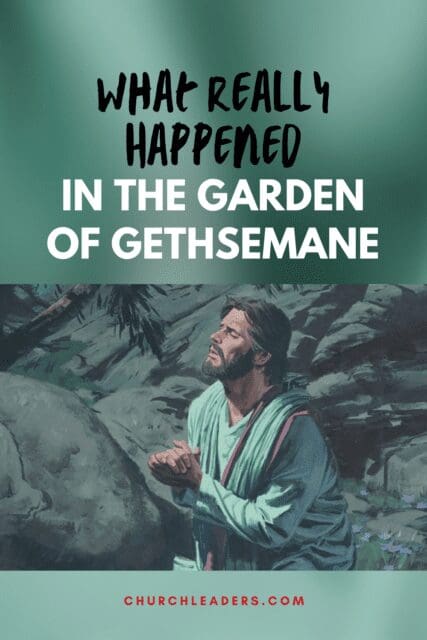Jesus had lived his entire life, you see, with the approval of the Father, and now, in the moment Jesus needed his Father most, God turned his face away. And Jesus staggered under the weight of it, almost to the point of death. Lane says, “This is the horror of one who lived wholly for the Father, who came to be with his Father for a brief interlude before his death and found hell, rather than heaven, open before him.”
He was facing aloneness—and not just utter aloneness but the sting of rejection. I think about what it would be like to turn away from one of my children in a moment when they needed me—to have them look to me in a moment of pain or weakness and for me to turn from them in scorn and say, “You are not my child.” Can you imagine how crushing that would be to them? Yet my children have only known me for a few years, and I’m not a perfect father. What must it have been like to lose the infinite love of the Father that you’ve known for all eternity?
Somehow, in that one moment, Jesus glimpsed an eternity in hell for us. Because that is the essence of what hell is: complete abandonment by God.
When I was younger, I always thought that what made Jesus’ death so bad were the physical horrors. And they were, by all accounts, terrible. But that is not what made Jesus stagger in Gethsemane. Jesus staggered because he faced abandonment by God. That was the horror of the cross for him. That’s why the Gospel writers don’t focus much on the physiological aspects of the crucifixion. The physical suffering, as bad as it was, wasn’t the essence of Calvary. The essence of Calvary was abandonment by God.
In Gethsemane, Jesus looked full into the cup of God’s wrath, and it overwhelmed him so badly that it almost killed him. Gethsemane, in fact, means “oil press,” and that’s what was happening: The reality of God’s wrath against our sin is pressing in on Jesus, and it is literally squeezing the life out of him.
So, he prayed, three times, “Father, if there is any other way, let this cup pass from me.” Had Jesus ever prayed another prayer that had not been answered? Yet this one was not. Because there was no other way.
Isaiah 51:17 describes God’s wrath against our sin like a toxic poison kept in a cup. As that cup was offered to us, Jesus stepped in the way, drank it for us—to the dregs—and said, “It is finished.” If I had been there and tried to stop Jesus, he would have said to me, “No, J.D., this cup is your cup. There is no other way. Either you drink this, or I drink this. And if you drink it, then you’re apart from me forever. Your salvation is something only I can accomplish.”
Jonathan Edwards, reading this passage, asked the question, “Why would God open up for Jesus the horrors of the cross like this here in Gethsemane?” It almost seems cruel and, in one sense, a little risky: What if seeing these things made Jesus want to back out? Why not wait until Jesus was secured to the cross to show him all this?
This is Edwards’ answer: “It was so we could see Jesus go to the cross voluntarily, knowing full well what he was about to experience, so that his love for us would be put on display even more.” It was so we could see the extent of the price he was willing to pay to redeem us.
One of the Gospel accounts says an angel came to minister to Jesus at this point. We don’t know what the angel said, but the writer of Hebrews says that when Jesus got up from there to go to the cross, he did so “with joy” because of something that had been set before him.
What had been set before him in that moment? What did Jesus see that he was going to obtain that made the cross “worth it”? What did Jesus not have on that side of the cross that he would have on this side?
There’s only one thing: you.
There was no other way to save us, and so he did it gladly!
I stand amazed in the presence of Jesus, the Nazarene, and wonder how he could love me—a sinner, condemned, unclean.
For me it was in the Garden he prayed: “Not my will, but thine.” He had no tears for his own griefs, but sweat-drops of blood for mine.
He took my sins and my sorrows; he made them his very own; he bore the burden to Calvary and suffered and died alone.
How marvelous! How wonderful! And my song shall ever be: How marvelous! How wonderful is my Savior’s love for me!
This article originally appeared here.


